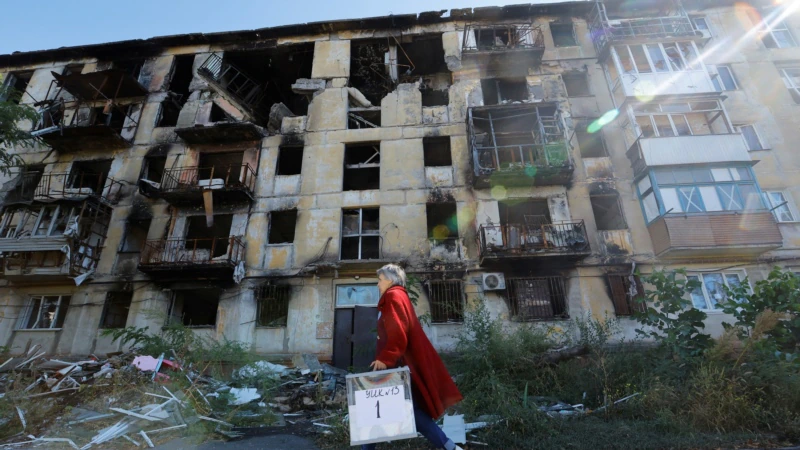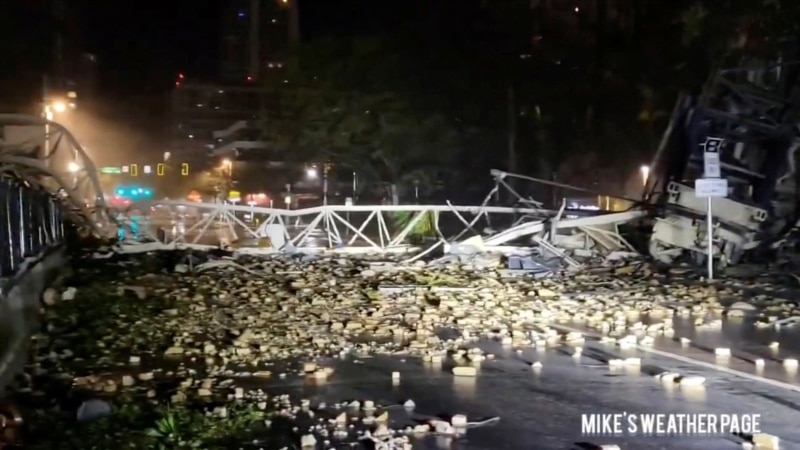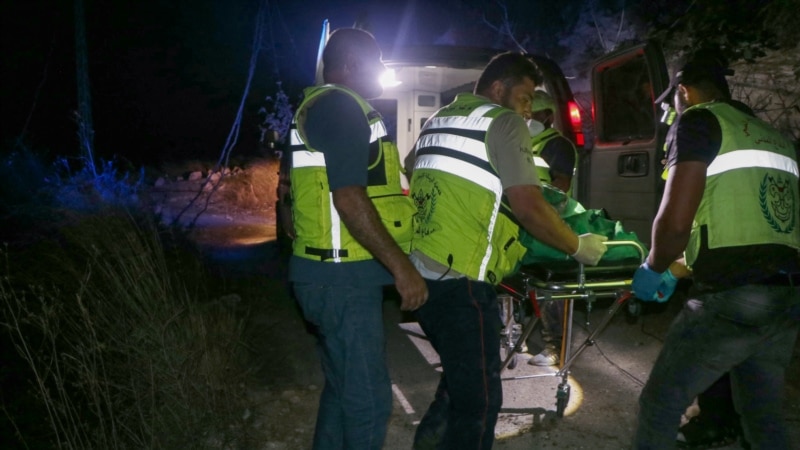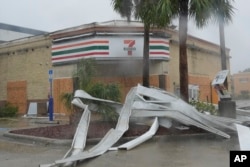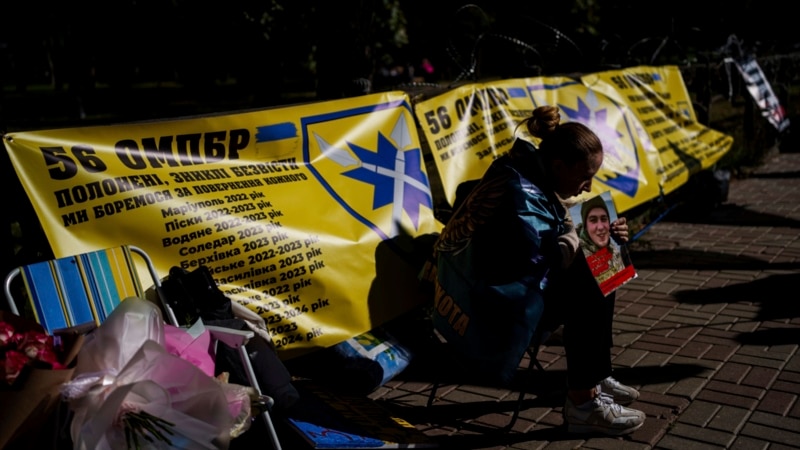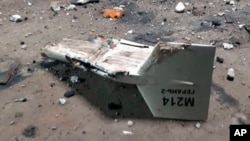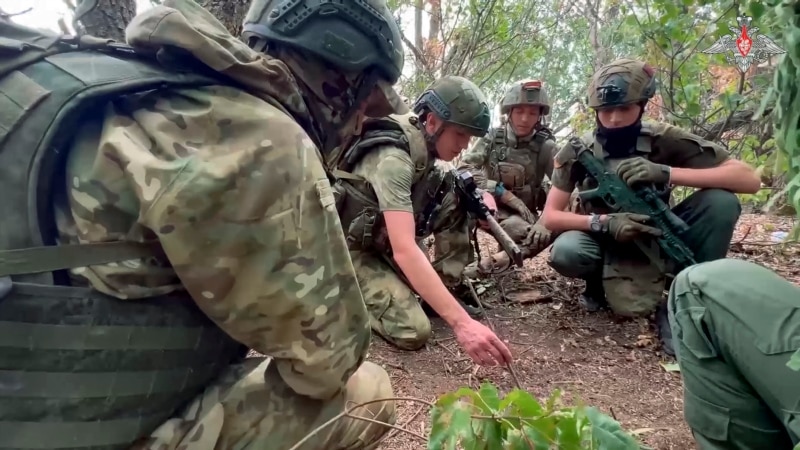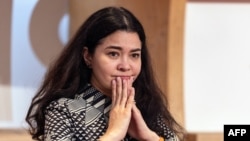For full coverage of the crisis in Ukraine, visit Flashpoint Ukraine.
The latest developments in Russia’s war on Ukraine. All times EDT.
9:50 a.m.: British Prime Minister Liz Truss said Britain and its allies should not be listening to Russian President Vladimir Putin’s “saber-rattling” on Ukraine after he ordered a partial mobilization of troops and raised the possibility of a nuclear conflict.
“We should not be listening to his saber-rattling and his bogus threats. Instead, what we need to do is continue to put sanctions on Russia and continue to support the Ukrainians,” Truss told CNN in an interview broadcast on Sunday.
9:11 a.m.: Seven more ships laden with agricultural produce left Ukrainian ports on Sunday, the country’s infrastructure ministry said, and Reuters reported. This brings the total to 218 since a U.N.-brokered corridor through the Black Sea came into force at the start of August.
In a post on Facebook, the ministry said this brought the total amount of agricultural produce shipped through the corridor to 4.85 million tons.
“On September 25 … seven ships with 146.2 thousand tons of agricultural produce for countries in Africa, Asia and Europe left the ports of Odesa, Chornomorsk and Pivdennyi,” the ministry said.
Ukraine shipped up to six million tons of grain per month before the war.
8:40 a.m.: Ukraine and Russia traded accusations on Sunday of attacks on civilians in southern Ukraine, according to Reuters.
Ukraine’s military said Russian forces had launched dozens of missile attacks and air strikes on military and civilian targets in the past 24 hours. Russia also used drones to attack the center of the southern city of Odesa, Ukraine’s military said. No casualties were reported.
Russia denies deliberately attacking civilians. The RIA state news agency reported Ukrainian forces bombed a hotel in the city of Kherson, killing two people. Russian forces have occupied the southern city since the early days of the invasion.
There was no immediate response from Ukraine.
Russia’s defense ministry said on Sunday Ukrainian forces continued attacks around the Zaporizhzhia nuclear plant, including launching eight “kamikaze drones” at the facility.
8:02 a.m.: The referendums in four eastern Ukrainian regions, aimed at annexing territory Russia has taken by force, continued on their third day Sunday. The Russian parliament could move to formalize the annexation within days, Reuters reported.
Russia has sought to defend its seven-month old war at the United Nations, with Foreign Minister Sergei Lavrov saying that regions of Ukraine where widely-derided referendums are being held would be under Russia’s “full protection” if annexed by Moscow.
Ukraine and its Western allies have dismissed the referendums as a sham designed to justify an escalation of the war and a mobilization drive by Moscow after recent battlefield losses.
Addressing the U.N. General Assembly and the world’s media in New York on Saturday, Lavrov attempted to justify Russia’s invasion of its neighbor, repeating Moscow’s false claims that the elected government in Kyiv was illegitimately installed and filled with neo-Nazis.
5:35 a.m.: The latest intelligence update from the U.K. defense ministry said high-profile Russian nationalist Duma member Aleksandr Khinstein on Sept. 21 called for the partial mobilization of Russia’s military to be extended to the Russian National Guard (Rosgvardia).
Rosgvardia units have played an important role in both combat and rear-area security in Ukraine and are currently facilitating accession referendums in occupied areas, the update said. Mobilization may be used to reinforce Rosgvardia units with additional manpower.
5:02 a.m.: The latest Ukraine assessment from the Institute for the Study of War, a U.S. think tank, said Russia may be preparing to forcibly mobilize Ukrainian prisoners of war in what may constitute a violation of the Geneva Convention on Prisoners of War.
Russian forces conducted ground attacks around Bakhmut, Donetsk City, and in western Donetsk Oblast, the assessment said, while Ukrainian forces likely continued to make gains along the Kharkiv-Luhansk Oblast border and northwest of Lyman.
3:13 a.m.: Serbia has signed an agreement with Russia for mutual “consultations” on foreign policy matters, the Balkan country’s media reported Saturday, according to The Associated Press.
Serbian Foreign Affairs Minister Nikola Selakovic signed the agreement Friday along with Russian Foreign Minister Sergey Lavrov on the sidelines of the U.N. General Assembly meeting in New York.
The consultation plan covered by the agreement is expected to last for two years, Serbia’s foreign ministry said in a Friday statement.
Although Serbia said it supports Ukraine’s territorial integrity, the government has repeatedly refused to join Western sanctions against its Slavic allies in Moscow.
Aligning foreign policies with the EU is one of the main preconditions for joining the 27-nation bloc, but Serbia has increasingly defied calls to do so.
Media in Serbia and Russia said Serbia’s populist president, Aleksandar Vucic, met Lavrov in New York and the two “emphasized the joint focus on further dynamic development of Russian-Serbian relations.”
Officials from Serbia’s pro-Western opposition said the signing of the latest deal with Russia is a sign that Vucic, a former ultranationalist, has given up on the Balkan country joining the EU and is bringing it closer into Moscow’s fold.
2:17 a.m.: The Kremlin’s statements on the possible use of nuclear weapons are “absolutely unacceptable” and Kyiv will not give into it, Ukraine’s Foreign Minister Dmytro Kuleba said early Sunday.
Russian President Vladimir Putin and other Russian officials, including Foreign Minister Sergei Lavrov, have mentioned nuclear weapons as an option in extremis.
“Putin’s and Lavrov’s irresponsible statements on the possible use of nuclear weapons are absolutely unacceptable,” Kuleba wrote on Twitter. “Ukraine won’t give in. We call on all nuclear powers to speak out now and make it clear to Russia that such rhetorics put the world at risk and will not be tolerated.”
1:16 a.m.: Kyiv and Moscow traded blame for shelling in Ukraine’s Zaporizhzhia region late Saturday, Reuters reported.
Regional governor Oleksandr Starukh said on Telegram that Russian forces launched “a massive missile strike” on the region from about 10 planes, wounding at least three people.
Russia’s RIA state news agency, citing unnamed sources, said Ukrainian forces shelled a granary and fertilizer warehouses in the region.
Reuters was unable to verify the claims of either side.
12:02 a.m.: Ukrainian President Volodymyr Zelenskyy said he was shocked at Israel’s failure to give Kyiv antimissile systems to help counter Russian attacks, according to an interview made public Saturday.
Zelenskyy has been asking for the weapons since shortly after the war started in February. He has mentioned Israel’s Iron Dome system, often used to intercept rockets fired by Palestinian militants in Gaza.
“I don’t know what happened to Israel. I’m honestly, frankly – I am in shock, because I don’t understand why they couldn’t give us air defenses,” he said, according to Reuters.
Zelenskyy made the remarks in an interview with French reporters on Wednesday. His office released a recording of the interview Saturday.
Some information in this report came from Reuters and The Associated Press.

